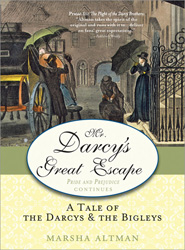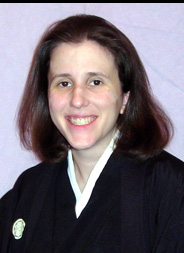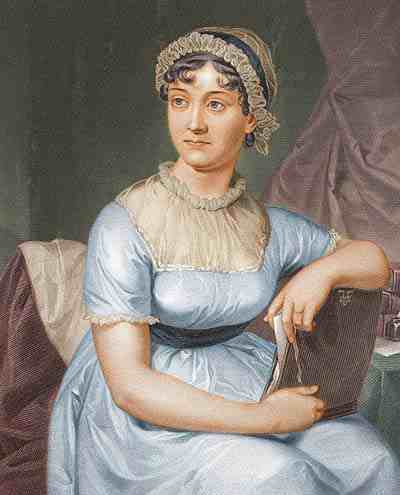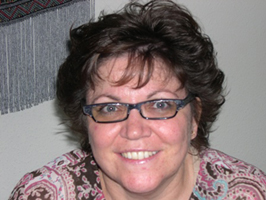Review: The Man Who Loved Pride & Prejudice by Abigail Reynolds
Posted in Review on May 6th, 2010 The Man Who Loved Pride & Prejudice by Abigail Reynolds, Sourcebooks Casablanca, ISBN: 978-1402237324, pages 448, paperback. (Amazon price: $6.99) (Previously published as Pemberley by the Sea in 2008 by Sourcebooks Landmark).
The Man Who Loved Pride & Prejudice by Abigail Reynolds, Sourcebooks Casablanca, ISBN: 978-1402237324, pages 448, paperback. (Amazon price: $6.99) (Previously published as Pemberley by the Sea in 2008 by Sourcebooks Landmark).
I’m always a bit trepidacious about reading a Pride & Prejudice follow on especially when it’s a modern retelling, however, Abigail Reynolds, not only manages to follow the spirit of Pride & Prejudice and the romance between Elizabeth Bennet and Fitzwilliam Darcy but she also manages put in a retelling of that tale in modern times using the main plotline of her book. It’s an amazing bit of self-referencing and it not only works but packs an emotional punch just when the narrative needs it to move forward.
Since the book title is The Man Who Loved Pride & Prejudice, we expect that the characters will be mapped to those in Pride and Prejudice. Cassandra (Cassie) Boulton is a marine biologist who does summer research at BML in Woods Hole, Massachusetts and teaches at a small liberal arts college in Pennsylvania. She grew up in the slums of Chicago and has worked extremely hard to make her dreams come true — to get stability and tenure and to have a career where she can be near the ocean. Calder Westing is the son of Senator Joseph Westing and grew up with wealth and all the advantages that wealth and a family active in politics and high society could provide. As with his prototype, he gives the impression of pride and arrogance. The book also has stand-ins for Jane Bennet and Charles Bingley in Erin, Cassie’s best friend, and Scott Dunston, Calder’s best friend.
Cassie spends every summer doing research in Woods Hole, which is a mecca of marine biology and oceanography research on the east coast of the United States, as well as a picturesque vacation spot. Erin, who is recovering from a bad relationship, came to be Cassie’s research assistant, and to pull herself together before her final year of graduate school. Erin had arrived first and met a wonderful man, Scott. Cassie is expected to meet Scott at the evenings contradance. Calder who just had a bad experience with his family is going to be spending part of the summer with Scott, but when he arrives he finds the house locked and a note from Scott telling him that he can wait or meet him at the dance.
The scene is set, the characters meet, and except for the modern setting and character changes necessary to update, if you’ve read Pride & Prejudice, you know how things are probably going to go. [Remember the first meeting of Elizabeth and Darcy was at the ball in the assembly rooms.]
Once in motion much of the action is predictable if you know the underlying story, however, even so Reynolds manages to surprise and entice the reader to get involved with these characters and their lives and before long you’ve forgotten the Pride & Prejudice of the title and become totally committed to this story. She tells the story mainly from Cassie’s point of view with occasionally forays into Calder’s viewpoint.
There’s a lot going on in The Man Who Loved Pride & Prejudice. There is the romance between Cassie and Calder. There is the romance between Erin and Scott. There’s the underlying story of Pride & Prejudice that is echoed in the main plot line. There’s the additional story of the updated Pride & Prejudice written within the story that echoes again the main plot line. And it works — it all comes together to be one of the best modernizations of Pride & Prejudice that I’ve read in quite a long time.
The Man Who Loved Pride & Prejudice is though, at heart, a romance or a love story. It’s modern and there are sex scenes that will heat your house or power all your electronics. But flipping through the book to check, there really aren’t that many sex scenes, they just carry a lot of punch. Reading two of the most steamy ones over again, I realized that Reynolds manages to use the readers to add the steam. She doesn’t, as some authors do, go into detail in these scenes. She sets the scene, writes suggestive descriptions and leaves us with a hot flash of epic proportions. I’ve always preferred allusion and suggestion to explicit in-my-face descriptions and I think I’ve figured out why — it’s far more powerful a scene when the reader’s imagination is engaged. A fact that many writers should take note of, in my opinion.
Reynolds manages to harness the reader’s imagination throughout the novel as she plays with our expectations. This raises the book from a very good exploration of the theme to a really great one. If Pride & Prejudice holds a place in your heart, definitely give The Man Who Loved Pride & Prejudice a try.
For those of you who love romance and love stories and have never read Pride & Prejudice, dive into this book. It’s a wonderful romance and I would expect after reading it that you’d be willing to give Pride & Prejudice a try to see just why Jane Austen’s book is still so popular so many years after its publication.



 ABOUT THE AUTHOR:
ABOUT THE AUTHOR:

 Monica Fairview, author of The Other Mr Darcy, was gracious enough to answer a few questions allow me to share her answers. Her book was released on October 1st and is now in stores. I reviewed
Monica Fairview, author of The Other Mr Darcy, was gracious enough to answer a few questions allow me to share her answers. Her book was released on October 1st and is now in stores. I reviewed 